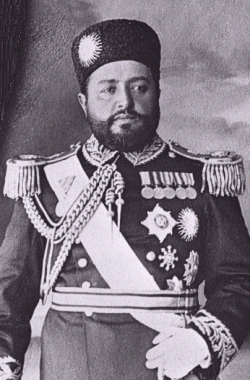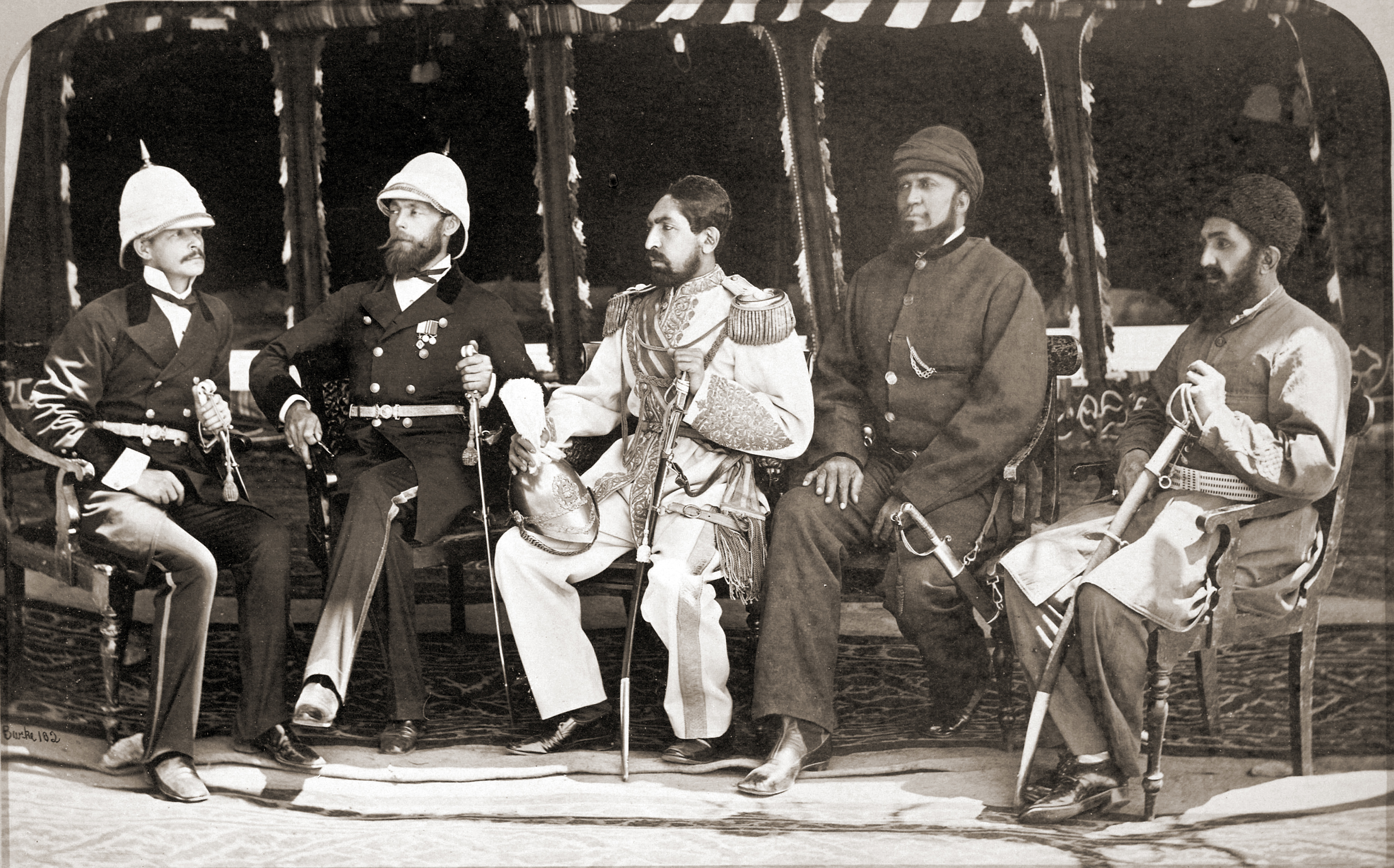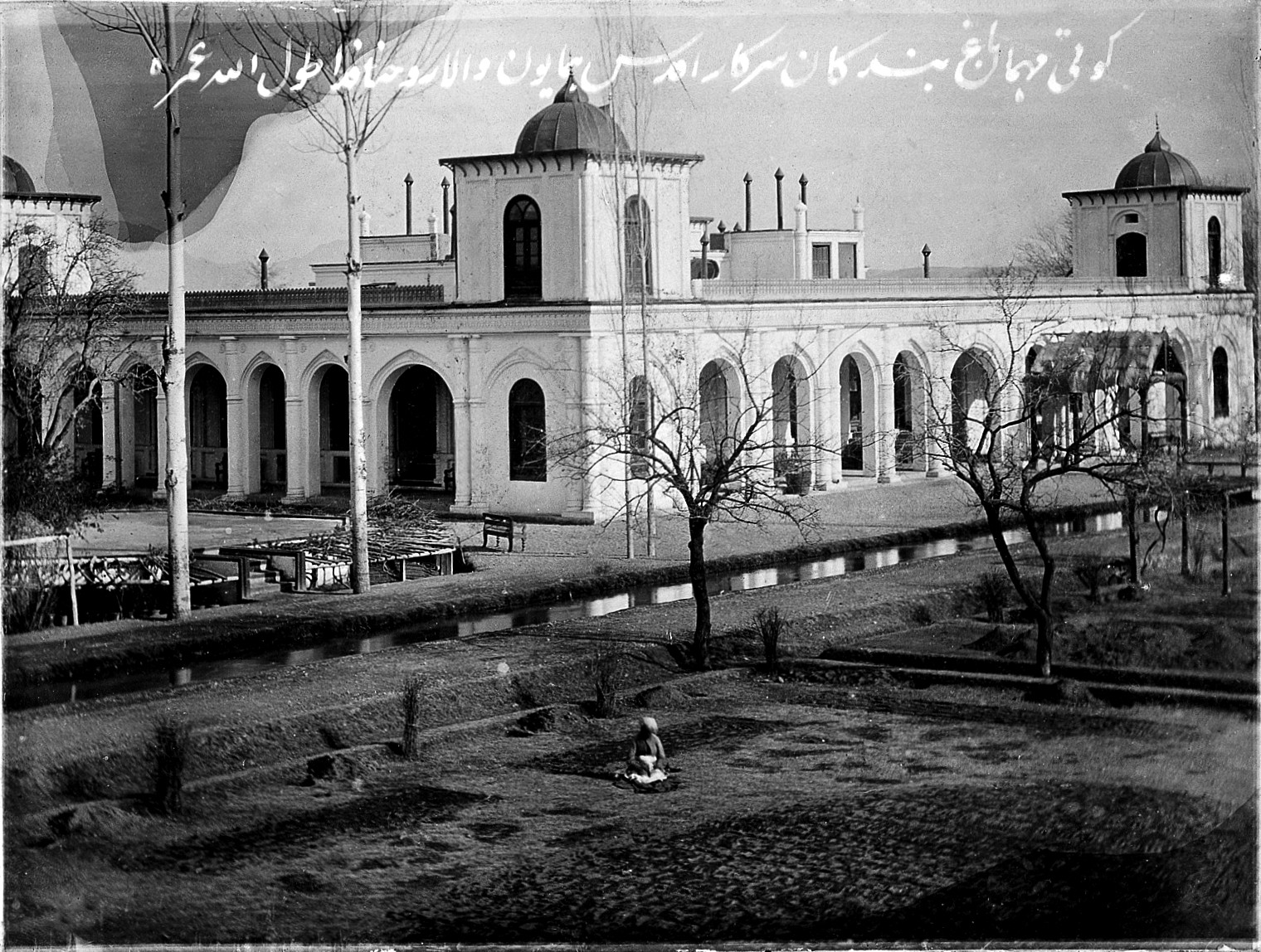|
Shaghasi
The Shaghasi are, alongside the Seraj and Telai, a prominent and powerful cadet-branch of the Afghan royal family. They belong to the Zirak branch of the Durrani confederacy, and are primarily centered around Kandahar. They can also be found in other provinces throughout central Afghanistan. The Shaghasi Khel held more influence than the Mohammadzai during the reign of Emir Sher Ali Khan - Emir of Afghanistan, and Emir Amanullah Khan - Emir of Afghanistan (February 28, 1919 – 1926), later King of Afghanistan (1926 - January 14, 1929). Shaghasi Barakzai are closely related to Amanullah Khan. Queen Sawar Sultana Begum ''Shaghasi'' daughter of Loinab Sher Dil Khan of Shaghasi, Governor of Balkh was King Amanullah Khan's mother. Ali Ahmad Khan ''Shaghasi'' (1883–1929) who was declared Emir of Afghanistan twice in 1929 son of General ''Loinab'' Khushdil Khan, sometime Governor of Kabul and Kandahar, by his wife Sahira Begum, daughter of ''Amir al-Mumenin, Amir al-Kabir,'' Ami ... [...More Info...] [...Related Items...] OR: [Wikipedia] [Google] [Baidu] |
Barakzai Dynasty
The Barakzai dynasty (, "Sons of Barak"), also known as the Muhammadzai dynasty ("the ruling sub-clan of the Barakzai"), ruled what is now Afghanistan from 1823 to 1978, when the monarchy ended de jure under Musahiban Mohammad Zahir Shah and de facto under his cousin Mohammad Daoud Khan. The Barakzai dynasty was established by Dost Mohammad Khan after the Durrani Empire of Ahmad Shah Durrani was removed from power. As the Pahlavi era in Iran, the Muhammadzai era was known for its progressivist modernity, practice of Sufism, peaceful security and neutrality, in which Afghanistan was referred to as the "Switzerland of Asia". History and background Ancestral background The Barakzai claim descent from the children of Israel in a direct line through the first Israeli King Saul, whose family intermarried with the family of his successor King David. King Saul's grandson the Prince (Malak) Afghana was grown up by King Solomon, acting as his commander in chief and Manager ... [...More Info...] [...Related Items...] OR: [Wikipedia] [Google] [Baidu] |
Ali Ahmad Khan
Amir Ali Ahmad Khan, ''Shaghasi'' (; 1883–1929) was an Afghan king from the Shaghasi family of the Barakzai tribe who was declared king of Afghanistan twice in 1929. He was first declared amir of Afghanistan by an influential cleric, Naqib Sahib on 20 January 1929, in eastern Afghanistan, but was defeated by Kalakani at Jagdalak on 19 February 1929. He was also declared as the amir of Afghanistan for the second time on 23 June 1929 in Kandahar, Afghanistan, by another highly influential Mufti Abd. Wasi Kandahari, but was defeated and captured by Kalakani on 3 July 1929. Khan was born in 1883 in Mashhad, Persia. He was the son of ''Loinab'' Khushdil Khan, and grandson of ''Loinab'' Shirdil Khan Shaghasi. Ali Ahmad Khan was educated in Murree (British India) and served as chamberlain ''Isk Aqasi'' (''Shaghasi),'' of Amir Habibullah Khan. Ali Ahmad Shaghasi played a leading role in negotiating the controversial Anglo-Afghan Treaty of 1919 during the reign of his brother-in-law Am ... [...More Info...] [...Related Items...] OR: [Wikipedia] [Google] [Baidu] |
Sarwar Sultana Begum
Sarwar Sultana Begum or (Ulya (Ulli) Hazrat) (1875 – 1965), was an Afghan royal consort. She was married to Habibullah Khan (r. 1901–1919), and was the mother of king Amanullah Khan (r. 1919–1929). Life Early life and marriage She was the daughter of Loinab Sher Dil Khan of Shaghasi, Governor of Balkh. Her sister, Tajawar Sultana married Sardar Mohammad Ali Khan Mohammadzai and they had two sons, Sardar Younus Khan and Sardar Mohammad Wali Jan. Her brother, Loinab Khush Dil Khan (born 1844) was the father of Loinab Ali Ahmad Khan (1883-1929). He was married to Princess Sahira Begum Siraj Al Banat, Sarwar Sultana's daughter. She was one of the many wives of king Habibullah Khan. Like his predecessors, Habibullah Khan had four official wives and a large number of unofficial wives as well as concubinage in Islam, slave concubines in the royal Harem Sara palace complex in Kabul. Her husband was known to have even more wives than was common, having at least 44 official or unoffi ... [...More Info...] [...Related Items...] OR: [Wikipedia] [Google] [Baidu] |
Barakzai
Bārakzai (, plur. , ) is the name of a Pashtun tribe from present-day Kandahar, Afghanistan. '"Barakzai" is a common name among the Pashtuns and it means "son of Barak" in Pashto. According to the Encyclopædia Iranica, "In the detailed Pashtun genealogies there are no fewer than seven instances of the ethnic name Bārakzī, at very different levels of tribal segmentation. Six of them designate simple lineages within six different tribes located in the Solaymān mountains or adjacent lands... The seventh instance, on the other hand, designates one of the most important Pashtun tribes in numbers and historic role, part of the Zīrak branch of the Dorrānay confederation. History Ludwig W. Adamec wrote that the Barakzai are "an important section of the Zirak branch of the Durrani to which the former Barakzai/Muhammadzai ruling family belongs. In numbers, economic, and political strength, the Barakzai were the paramount tribe of Afghanistan...They were soldiers in the service ... [...More Info...] [...Related Items...] OR: [Wikipedia] [Google] [Baidu] |
Mohammadzai
Mohammadzai (), also spelled Moḥammadzay (meaning "descendants of Mohammad"), is a Pashtun sub-tribe or clan of the Barakzai which is part of the Durrani confederacy of tribes. They are primarily centered on Kandahar, Kabul and Ghazni in Afghanistan as well as in the city of Charsadda in neighbouring Pakistan. The Mohammadzai ruled Afghanistan from 1823 to 1978, for a total of 155 years. Their rule ended under Daoud Khan when the Communists took power via a Soviet-backed coup. Distribution Mohammadzai are the most prominent and powerful branch of the Durrani confederacy, and are primarily centered on Kandahar. They can also be found in other provinces throughout Afghanistan as well as across the border in present-day Pakistan. Musahiban are the descendants of Sultan Mohammad Khan, also known as "Telai". Telai means Gold in Dari. He was the elder brother of Dost Mohammed Khan. Language The principal language of the Mohammadzai is Pashto, more specifically the Southern ... [...More Info...] [...Related Items...] OR: [Wikipedia] [Google] [Baidu] |
Dari Language
Dari (; endonym: ), Dari Persian (, , or , ), or Eastern Persian is the variety of the Persian language spoken in Afghanistan. Dari is the Afghan government's official term for the Persian language;Lazard, G.Darī – The New Persian Literary Language", in '' Encyclopædia Iranica'', Online Edition 2006. it is known as Afghan Persian or Eastern Persian in many Western sources. The decision to rename the local variety of Persian in 1964 was more political than linguistic to support an Afghan state narrative. Dari Persian is most closely related to Tajiki Persian as spoken in Tajikistan and the two share many phonological and lexical similarities. Apart from a few basics of vocabulary, there is little difference between formal written Persian of Afghanistan and Iran; the languages are mutually intelligible. Dari is the official language for approximately 30.6 million people in Afghanistan and it serves as the common language for inter-ethnic communication in the countr ... [...More Info...] [...Related Items...] OR: [Wikipedia] [Google] [Baidu] |
Mohammad Yaqub Khan
Mohammad Yaqub Khan (Pashto/Dari: ; 1849November 15, 1923) was Emir of Afghanistan from February 21 to October 12, 1879. He was a Pashtun and the son of the previous ruler, Sher Ali Khan. Mohammad Yaqub Khan was appointed as the governor of Herat province in 1863. In 1870, he decided to rebel against his father but failed and was imprisoned in 1874. The Second Anglo-Afghan War erupted in 1878, leading Sher Ali Khan to flee the capital of Afghanistan, and eventually die in February 1879 in the north of the country. As Sher Ali's successor, Yaqub signed the Treaty of Gandamak with Britain in May 1879, relinquishing sole control of Afghanistan foreign affairs to the British Empire. An uprising against this agreement led by Ayub Khan in October of the same year, led to the abdication of Yaqub Khan. He was succeeded by the new ruler, Amir Ayub Khan. Treaty of Gandamak During the Second Anglo-Afghan War, the British defeated the Amir Sher Ali's forces, wintered in Jalalabad, wai ... [...More Info...] [...Related Items...] OR: [Wikipedia] [Google] [Baidu] |
Abdur Rahman Khan
Abdur Rahman Khan (Pashto: ) (between 1840 and 1844 – 1 October 1901) also known by his epithet, The Iron Amir, was Amir of Afghanistan from 1880 to his death in 1901. He is known for perpetrating the Hazara genocide, but also uniting the country after years of internal fighting and negotiation of the Durand Line Agreement with British India. Abdur Rahman Khan was the only son of Mohammad Afzal Khan, and grandson of Dost Mohammad Khan, founder of the Barakzai dynasty. Abdur Rahman Khan re-established the writ of the Afghan government after the disarray that followed the second Anglo-Afghan war. He became known as ''The Iron Amir'' because of his government's military despotism. This despotism rested upon a well-appointed army and was administered through officials subservient to an inflexible will and controlled by a widespread system of espionage. The nickname, ''The Iron Amir'', is also associated due to his victory over a number of rebellions by various tribes who ... [...More Info...] [...Related Items...] OR: [Wikipedia] [Google] [Baidu] |
Pashtuns
Pashtuns (, , ; ;), also known as Pakhtuns, or Pathans, are an Iranian peoples, Iranic ethnic group primarily residing in southern and eastern Afghanistan and northwestern Pakistan. They were historically also referred to as Afghan (ethnonym), Afghans until 1964 after the term's meaning had become a demonym for all citizens of Afghanistan regardless of their ethnic groups in Afghanistan, ethnic group. The Pashtuns speak the Pashto, Pashto language, which belongs to the Eastern Iranian languages, Eastern Iranian branch of the Iranian languages, Iranian language family. Additionally, Dari serves as the second language of Pashtuns in Afghanistan, while those in Pakistan speak Urdu and English. In India, the majority of those of Pashtun descent have lost the ability to speak Pashto and instead speak Hindi and other regional languages. There are an estimated 350–400 Pashtun tribes, Pashtun tribes and clans with a Theories of Pashtun origin, variety of origin theories. In 2021 ... [...More Info...] [...Related Items...] OR: [Wikipedia] [Google] [Baidu] |
Habibullah Khan
Habibullah Khan (Pashto/Dari: ; 3 June 1872 – 20 February 1919) was the Emir of Afghanistan from 1901 until his assassination in 1919 by Shuja-ud-Daula Ghourbandi. He was the eldest son of the Emir Abdur Rahman Khan, whom he succeeded by right of primogeniture in October 1901. His grandfather was Mohammad Afzal Khan. Early life Habibullah was the eldest son of Emir Abdur Rahman, and was born in Samarkand, Uzbekistan to a Pashtun family in 1872. He had a younger brother, born on December 7, 1874, Nasrullah Khan (Afghanistan), Nasrullah Khan. Reign Habibullah was a relatively reform-minded ruler who attempted to modernize his country. During his reign he worked to bring modern medicine and other technology to Afghanistan. Many people who were forced into exile by his father were returned to Afghanistan by a general amnesty decreed by Habibullah. In 1901, Habibullah passed a law forcing Hindu men to wear yellow turbans and women to wear a yellow veil in public in order to ... [...More Info...] [...Related Items...] OR: [Wikipedia] [Google] [Baidu] |
Inayatullah Khan
Inayatullah Khan (Pashto/Dari: ), (20 October 1888 – 12 August 1946) was the King of Afghanistan for three days in January 1929. He was the son of former Afghan Emir, Habibullah Khan. Inayatullah's brief reign ended with his abdication. Khan was born into a Pashtun family. In the middle of the night, on 14 January 1929, Amanullah Khan handed over his throne to his brother Inayatullah Khan and tried to secretly escape from Kabul to Kandahar. Habibullāh Kalakāni and his followers chased Amanullah's Rolls-Royce on horseback but Amanullah managed to escape. With the King gone, Kalakani wrote a letter to Inayatullah to either surrender or prepare for war. Inayatullah's response was that he had never sought nor wished to be king and agreed to abdicate and proclaim Kalakani as king on 17 January 1929. Inayatullah was airlifted out of Kabul by the Royal Air Force and spent the remainder of his life in exile. In August 1929, during the Afghan Civil War (1928–1929), there w ... [...More Info...] [...Related Items...] OR: [Wikipedia] [Google] [Baidu] |






